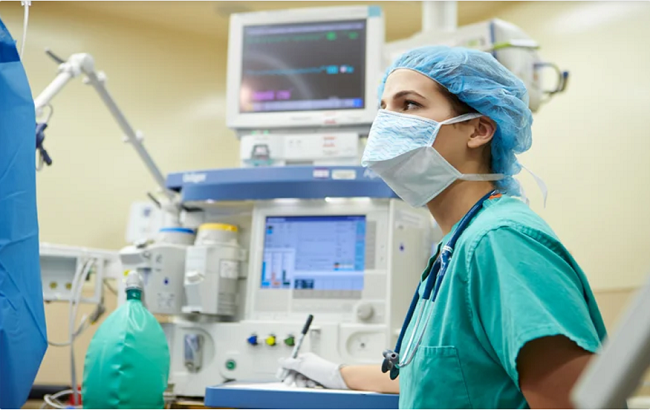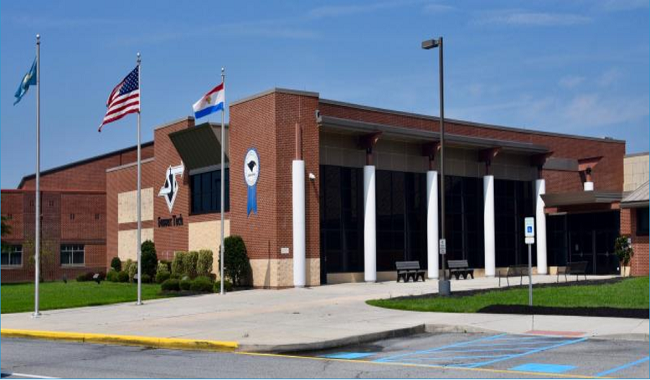As the healthcare industry continues to evolve, so do the roles that support its core functions. One such role is that of an Anesthesiology Technician. These professionals work alongside anesthesiologists and other healthcare providers to ensure patients receive safe and effective anesthesia during surgeries and medical procedures. If you’re considering a career in this field or are already pursuing it, understanding the essential skills required for success will put you on the right path.
In this article, we’ll explore 7 essential skills every Anesthesiology Technician should master, and how these skills contribute to both personal career growth and the broader healthcare ecosystem.
1. Understanding and Operating Anesthesia Equipment
At the heart of an Anesthesiology Technician’s responsibilities lies the proper understanding and operation of anesthesia equipment. You’ll need to ensure that all machines and devices are functioning correctly before and during the procedure. This includes anesthesia delivery systems, ventilators, and patient monitoring tools.
Key Skills:
- Equipment Familiarity: Whether it’s an anesthesia machine or a vital signs monitor, you’ll need to know how each piece of equipment works and how to troubleshoot it when things go wrong. A solid grasp of the setup and functionality of these devices will help minimize complications.
- Routine Maintenance: Regular checks and calibration of equipment are crucial to avoid errors during surgery.
- Adaptability: New technologies are constantly introduced, so staying up-to-date with the latest advancements is crucial.
For example, a tech-savvy Anesthesiology Technician might use digital tools to maintain and calibrate anesthesia machines. Tech Savvy provides great tips on using digital tools in this area.
2. Patient Monitoring and Vital Signs
Another core aspect of the Anesthesiology Technician role involves closely monitoring the patient’s vital signs during anesthesia. Since anesthesia suppresses bodily functions to some degree, continuous observation is necessary to ensure the patient is stable.
Key Skills:
- Understanding Vital Signs: You need to monitor heart rate, blood pressure, oxygen levels, respiratory rate, and other key indicators that tell the anesthesia team about the patient’s condition.
- Real-Time Data Analysis: You’ll be responsible for spotting any abnormalities quickly. This means understanding the limits of normal ranges and being able to act fast if the patient shows signs of distress.
- Collaborative Communication: If a patient’s vitals deviate from the norm, you must quickly alert the anesthesiologist and surgeon, ensuring everyone is on the same page.
Patient monitoring is a skill that directly affects patient safety, and your ability to manage this responsibility can significantly influence the outcome of surgeries.
3. Anesthesia Preparation and Administration Assistance
Though Anesthesiology Technicians do not typically administer anesthesia directly, you play a key supporting role in preparing and assisting with anesthesia administration. This includes preparing the anesthetic drugs, ensuring accurate labeling, and assisting with injections or the setup of intravenous (IV) lines.
Key Skills:
- Anesthetic Drug Knowledge: You must know which drugs are used for different procedures and their corresponding dosages, side effects, and interactions.
- Sterility and Hygiene: In an operating room, maintaining sterility is non-negotiable. You’ll prepare drugs and devices in sterile conditions to avoid contamination.
- Attention to Detail: Accuracy in labeling and dosage ensures that the patient receives the correct anesthetic agents, reducing the risk of complications.
4. Sterile Techniques and Infection Control
A major component of your role involves maintaining a sterile environment during surgeries and procedures. You’ll need to follow strict infection control protocols to prevent any contaminants from entering the patient’s body.
Key Skills:
- Sterile Field Management: Setting up sterile fields for anesthesia preparation and assisting the surgical team in maintaining that sterility throughout the procedure is vital.
- Disposal of Contaminated Items: Knowing how to properly dispose of needles, syringes, and other potentially hazardous materials is part of infection control.
- Personal Protective Equipment (PPE): You’ll need to wear gloves, gowns, masks, and face shields while working to protect both yourself and the patient.
An Anesthesiology Technician must be well-versed in these sterilization procedures and infection prevention strategies to avoid complications that could arise from contamination.
5. Communication and Teamwork
As an Anesthesiology Technician, you’re an integral part of a larger team, which includes anesthesiologists, surgeons, and nurses. Effective communication with these professionals is essential for patient safety and optimal care.
Key Skills:
- Accurate Reporting: You’ll be expected to relay critical information to other members of the medical team, including patient history, equipment functionality, and vital signs.
- Cooperative Mindset: Anesthesia technicians need to work well under pressure and be adaptable in fast-paced environments like operating rooms.
- Patient Interaction: You will often interact with patients before they are sedated. Your ability to reassure and explain the anesthesia process to nervous patients will help ensure their comfort and reduce their anxiety.
Clear communication ensures that the anesthesiologist and surgical team are prepared for any unexpected events, and it helps facilitate smoother, more successful surgeries.
6. Knowledge of Anesthesia Pharmacology
A deep understanding of anesthesia drugs is essential for an Anesthesiology Technician. Whether it’s inhalation agents, IV anesthetics, or local anesthetics, you’ll need to know their effects on the body, their risks, and when and how to use them.
Key Skills:
- Drug Classifications: An understanding of the different types of anesthesia drugs is necessary. You should know the differences between local, general, and regional anesthetics and when each is appropriate.
- Dosage and Administration: You’ll need to be familiar with the appropriate dosages and methods of administration based on patient characteristics such as weight, age, and health conditions.
- Recognizing Side Effects: Knowing how to identify and respond to adverse drug reactions is essential for patient safety.
Anesthesia pharmacology knowledge ensures that you support the anesthesia team in selecting and delivering the correct drugs to the patient.
7. Handling Emergency Situations
Anesthesia-related emergencies are rare, but they do occur. An Anesthesiology Technician needs to be prepared for anything, including sudden changes in the patient’s vital signs or anesthesia-related complications. Whether it’s equipment malfunction or a medical emergency, your ability to remain calm and act quickly can save lives.
Key Skills:
- Crisis Management: Knowing how to respond to medical emergencies such as a drop in blood pressure, airway obstruction, or equipment malfunction is essential.
- CPR and Resuscitation: Being proficient in CPR and other emergency life-saving techniques is crucial. You’ll be expected to assist in resuscitating a patient in critical situations.
- Collaborating Under Pressure: In an emergency, you must work efficiently with the anesthesia team, surgeons, and other medical personnel to stabilize the patient.
A calm and composed response during a crisis is critical to patient survival, making this skill one of the most vital for an Anesthesiology Technician.
General Anesthesia Techniques for Technicians
General anesthesia techniques for technicians is a crucial skillset that an Anesthesiology Technician must master. These techniques involve administering anesthesia to patients during surgical procedures while ensuring their safety and comfort. It is essential for the Anesthesiology Technician to have thorough knowledge of various anesthesia agents and their effects. Mastery of general anesthesia protocols and techniques not only ensures the patient’s safety but also optimizes recovery times. Understanding these techniques is vital for every Anesthesiology Technician to perform their duties effectively and prevent complications.
Anesthesia Support Technician Training
Anesthesia support technician training is a key component of the professional development for an Anesthesiology Technician. This specialized training equips individuals with the skills required to assist anesthesiologists during procedures. The Anesthesiology Technician is responsible for setting up equipment, preparing anesthetic drugs, and monitoring the patient’s condition throughout surgery. Training in this field provides a solid foundation in both the technical and medical aspects of anesthesia care. Aspiring Anesthesiology Technicians must complete rigorous coursework and hands-on training to become certified and ensure they can support the team during various procedures.
Anesthesiology Technician Job Responsibilities
The Anesthesiology Technician job responsibilities are both diverse and critical to the anesthesia care team. From preparing and maintaining anesthesia equipment to assisting in administering anesthesia and monitoring patients’ vital signs, the role requires a combination of technical skill and attention to detail. An Anesthesiology Technician must be adept in operating complex medical devices and ensuring everything runs smoothly in the operating room. Their duties also include working closely with anesthesiologists and nurses to ensure patient safety before, during, and after surgery.
Sedation Monitoring in Anesthesia Care
Sedation monitoring is one of the most important duties of an Anesthesiology Technician. The technician plays a vital role in ensuring that the sedation administered during medical procedures is monitored effectively. Sedation helps patients remain comfortable and pain-free during minimally invasive procedures, and the Anesthesiology Technician ensures that the patient remains stable throughout. Monitoring includes tracking heart rate, oxygen levels, and other vital signs while alerting the anesthesia team to any changes.
FAQs About Anesthesiology Technicians
Q: What qualifications are required to become an Anesthesiology Technician?
A: A high school diploma is required, followed by specialized certification programs in anesthesia technology. Certification by the American Society of Anesthesia Technologists & Technicians (ASATT) is often recommended.
Q: How long does it take to become an Anesthesiology Technician?
A: It generally takes 1-2 years to complete the necessary education and certification programs.
Q: What is the salary of an Anesthesiology Technician?
A: The average salary for an Anesthesiology Technician ranges between $50,000 to $75,000 per year, depending on location, experience, and certification.
Q: Where do Anesthesiology Technicians typically work?
A: Anesthesiology Technicians work in hospitals, surgical centers, dental offices, and other healthcare settings where anesthesia is administered.
Conclusion
To be successful as an Anesthesiology Technician, you must master a combination of technical, clinical, and interpersonal skills. The ability to operate anesthesia equipment, monitor vital signs, prepare and administer anesthetic agents, and respond to emergencies are all essential components of this career. You’ll also need to stay updated on technological advancements, communicate effectively with a team, and maintain the highest standards of hygiene and patient safety.
By mastering these seven essential skills, you’ll be well on your way to becoming a skilled Anesthesiology Technician. Remember, continuous learning and hands-on experience are key in this ever-evolving field. By excelling in your role, you’ll contribute to the success of the healthcare team and ensure positive patient outcomes.
For those who are tech-savvy and looking to improve their skills with digital tools, consider exploring resources like Tech Savvy for helpful insights.
In summary, with the right skills and dedication, you can make a significant impact in the healthcare field as an Anesthesiology Technician.
You May Also Like:
Alpinestars Tech 7: 5 Essential Features for Unmatched Performance




